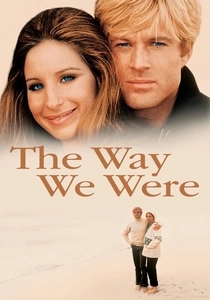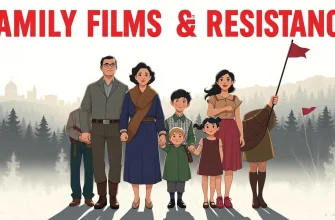Communism, with its complex history and ideological fervor, has been a rich source of inspiration for filmmakers around the globe. This curated list dives into the heart of the communist experience, offering a spectrum of narratives from the hopeful beginnings to the often grim realities. Whether you're a history buff, a film enthusiast, or simply curious about how cinema has interpreted this political and social movement, these films provide a compelling look into the lives shaped by communism, its ideals, and its consequences.

The Way We Were (1973)
Description: While primarily a love story, this film also delves into the political activism of the 1930s and 40s, with the female lead being a passionate communist.
Fact: The film's iconic theme song, "The Way We Were," became a hit single for Barbra Streisand.
 Watch Now
Watch Now 
The Front (1976)
Description: Set during the McCarthy era, this film focuses on a man who fronts for blacklisted writers, highlighting the absurdity and injustice of the Hollywood blacklist.
Fact: Woody Allen, who stars in the film, also co-wrote the screenplay, and it was one of his few dramatic roles.
 Watch Now
Watch Now 
Reds (1981)
Description: Warren Beatty's epic biopic about John Reed, an American journalist who became deeply involved with the Bolshevik Revolution, offering a sweeping look at the early days of Soviet communism.
Fact: Beatty won the Academy Award for Best Director for this film, and it was nominated for 12 Oscars in total.
 Watch Now
Watch Now 
The Hunt for Red October (1990)
Description: While not directly about communism, this film explores the tension between Soviet and American forces during the Cold War, with a Soviet submarine captain seeking to defect with his crew and a revolutionary submarine.
Fact: The film was based on Tom Clancy's novel and was one of the first major Hollywood films to depict the Soviet Union in a more nuanced light.
 Watch Now
Watch Now 
Burnt by the Sun (1994)
Description: Set in the summer of 1936, this film captures the last days of a Red Army hero before the Great Purge, exploring themes of betrayal, love, and the brutal reality of Stalinist purges.
Fact: It won the Palme d'Or at the Cannes Film Festival in 1994 and was Russia's submission for the Academy Award for Best Foreign Language Film.
 Watch Now
Watch Now 
Good Bye, Lenin! (2003)
Description: Set in East Germany, this film humorously and poignantly depicts a son's attempt to shield his mother, a staunch communist, from the shock of the fall of the Berlin Wall by recreating the GDR in their apartment. It's a unique blend of comedy and drama, reflecting the transition from communism to capitalism.
Fact: The film was a major success in Germany and internationally, winning numerous awards including the European Film Award for Best Film.
 Watch Now
Watch Now 
The Lives of Others (2006)
Description: This German film explores the life of a Stasi officer in East Germany who becomes increasingly disillusioned with the regime while surveilling a playwright and his actress girlfriend. It's a poignant look at surveillance, control, and the human spirit under a communist regime.
Fact: The film won the Academy Award for Best Foreign Language Film in 2007, and it was Ulrich Mühe's last major role before his death.
 Watch Now
Watch Now 
The Iron Curtain (1948)
Description: One of the earliest Hollywood films to tackle the subject of Soviet espionage in Canada, it provides a dramatized account of the defection of Igor Gouzenko, exposing Soviet spy rings.
Fact: The film was based on Gouzenko's own book and was one of the first anti-communist films produced in Hollywood during the Cold War.
 30 Days Free
30 Days Free 
The Inner Circle (1991)
Description: This film follows a simple projectionist who becomes part of Stalin's inner circle, offering a chilling insight into the paranoia and power dynamics of Soviet Russia under Stalin's rule.
Fact: The film was directed by Andrei Konchalovsky, who himself was a victim of the Soviet regime, having been expelled from the Soviet Union in
 30 Days Free
30 Days Free 
The Red Chapel (2009)
Description: This documentary follows two comedians and their manager as they travel to North Korea to perform, offering a rare glimpse into the secretive communist state through their interactions and performances.
Fact: The film was banned in North Korea, and the director, Mads Brügger, faced significant challenges in getting the footage out of the country.
 30 Days Free
30 Days Free 








